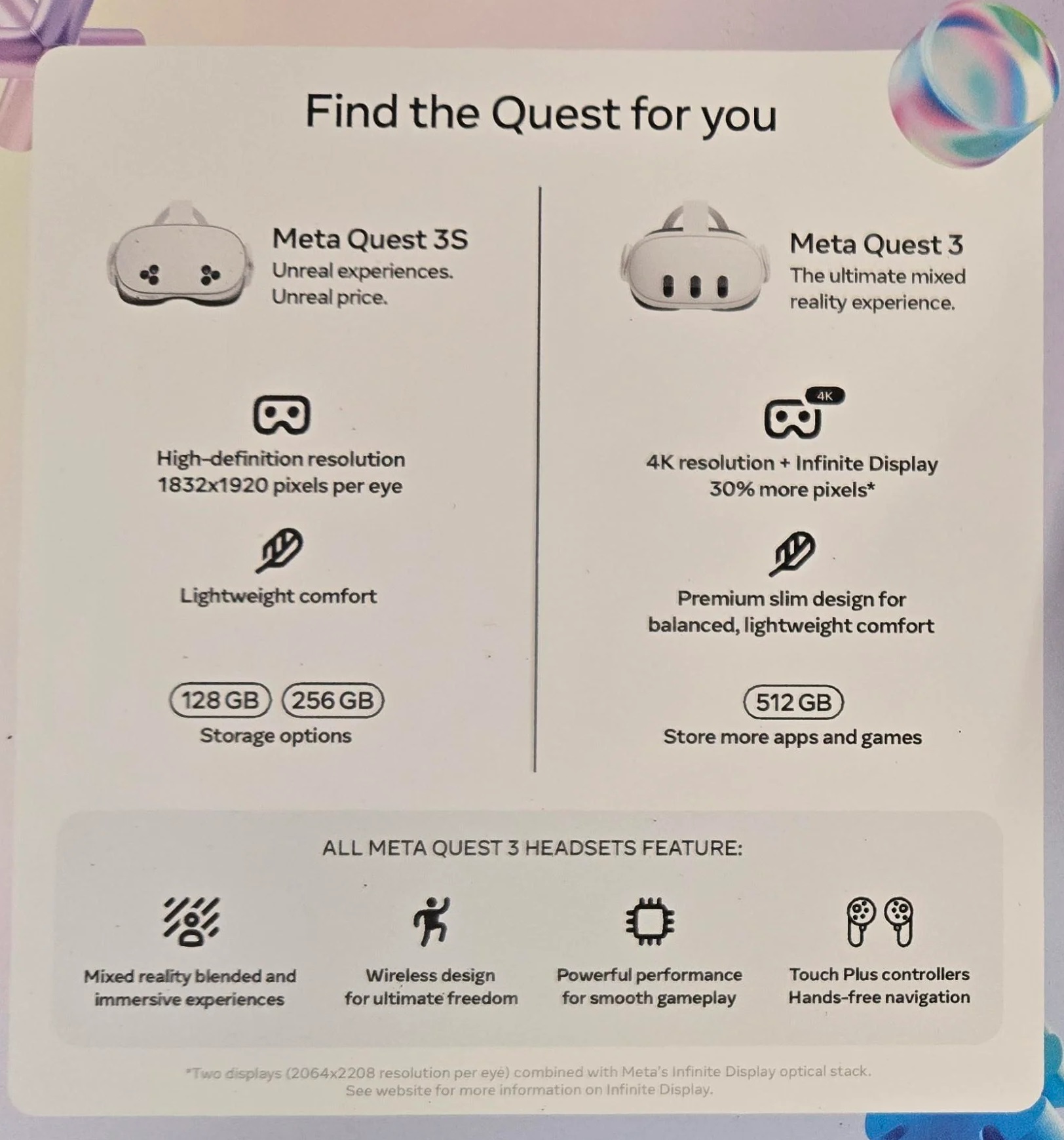Meta Connect 2024 recap: Meta Quest 3S, Orion smart glasses, Meta AI, and more
A roundup of all the news from Meta Connect 2024, and a recap of the event

Welcome to the Laptop Mag live blog for Meta Connect 2024. While the Connect keynote has come and gone, our pre-event coverage and live blog recap remain. Here you can get a measure of the event, and still gain further insight from our pre-event build-up — which successfully managed to hit on many of Meta's major reveals.
From the new Meta Quest 3S to Meta Orion AR glasses, our pre-event, event, and post-event coverage has all of the news, rumors, and details you'll need. So stick around, recap on the Meta Connect 2024 showcase, and get up to speed with our latest Meta Connect stories.
Meta Connect 2024: Post-event Coverage
- "Orion isn’t just a window into the future — it’s a look at the very real possibilities within reach today...": Meta's Orion smart glasses promise a mixed-reality revolution
- Meta's Orion smart glasses are a glimmer of our mixed reality future
- Meta Quest 3 vs. Meta Quest 3S: A VR headset head-to-head
- Meta unveils its Quest 3S headset as the most affordable way to get a proper taste of mixed reality
- Is Apple's affordable Vision Pro enough to take on Meta's Quest 3S?
Meta Connect 2024: Live blog
Meta Connect 2024: VR, AR, AI, and "Hi!"
Good morning from the Laptop Mag team as we kick-start today's coverage of Meta Connect 2024. We'll be with you throughout the day, bringing you the latest word surrounding today's event, while getting you up to speed with everything we know in advance.
So, why not dive straight into things? Perhaps the most widely anticipated reveal of today's event will be the official unveiling of the Meta Quest 3S. But what is it and what can we expect? Let's take a closer look.
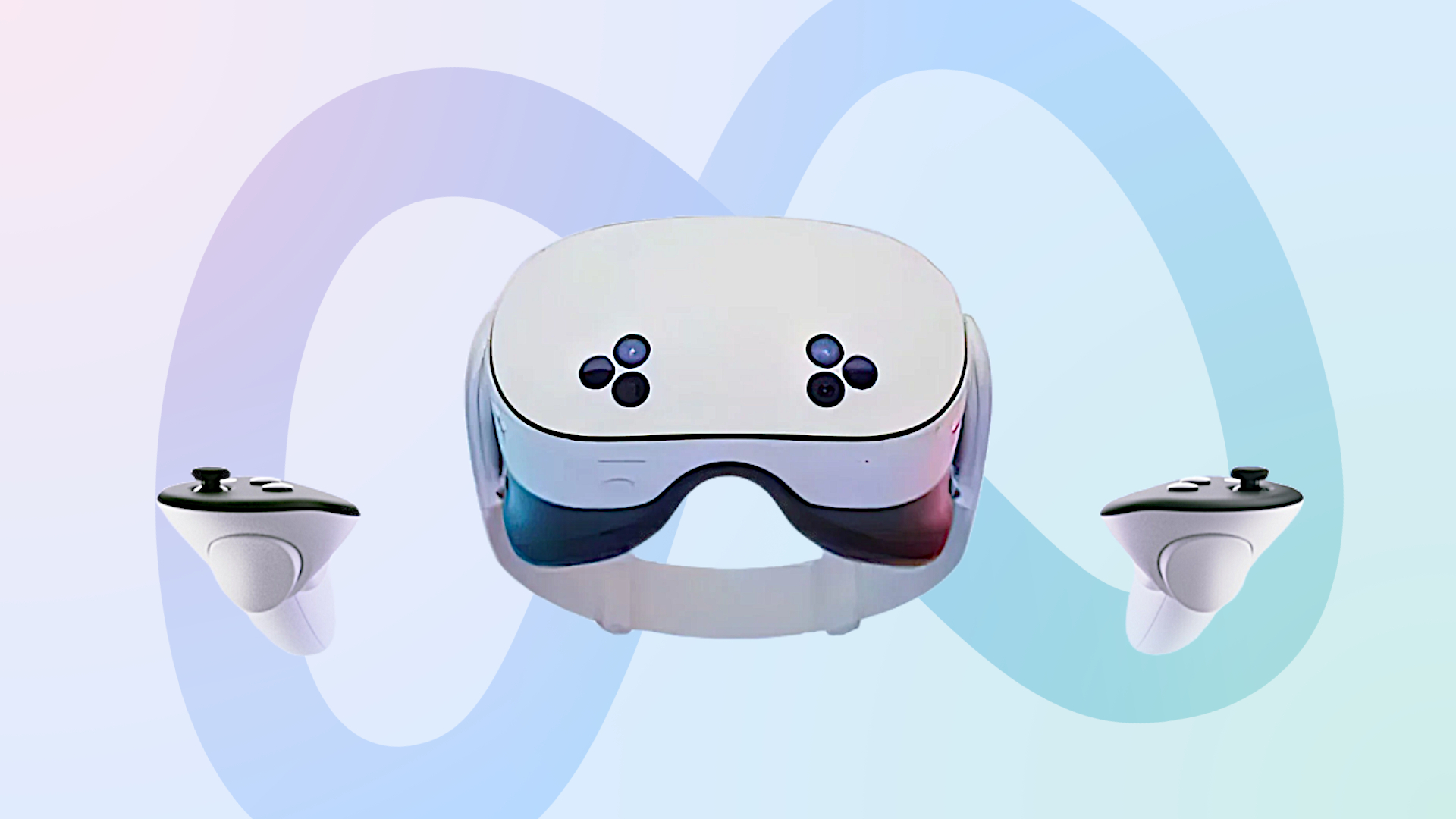
Meta Quest 3S: What is it?
Meta has an impressive history of VR headsets under its belt thanks to the glowing success of the Quest 2. However, a shift in focus to mixed reality called for a new generation of headset to emerge, and so we saw the Meta Quest 3 release in October 2023.
The Meta Quest 3 offers impressive virtual reality and augmented reality experiences using its pancake lens optics and RGB passthrough cameras. It's a more powerful headset capable of more graphically impressive results, and its swanky new Touch Plus controllers are a solid improvement over the Quest 2's also.
However, that advancement comes at a price, literally. With all of Meta's improvements, the Quest 3 wasn't able to maintain the same ultra-affordable pricing that made the Quest 2 such a popular choice among VR users and first-time adopters.
That's where the Meta Quest 3S comes in.
Meta's Quest 3S is less of a mid-cycle refresh as it is a 'lite' version of the current Meta Quest 3. It's expected to be a more affordable (more on that later) option, with the goal to give mixed reality headset adoption a considerable boost, similar to the impact the Quest 2 had on the VR landscape.
However, most interestingly, the Quest 3S isn't expected to compromise on core performance, meaning we won't be seeing a split in headset capabilities like how we've seen in the past with consoles like the Xbox Series X and Xbox Series S.
Meta Quest 3S: What to expect
There have been several substantial leaks surrounding the Meta Quest 3S in recent months, from leaked slides of a seemingly official Meta presentation to full-on, high-resolution, hands-on images of the headset appearing on a Korean message board.
As such, we've been able to piece together much of what we can expect from Meta's upcoming headset, and it's looking like an excellent addition to the Quest catalog of headsets.
Despite its reduced price, the Quest 3S will still make use of the same Qualcomm Snapdragon XR2 Gen 2 chip that powers the Quest 3, including its Adreno 740 GPU and 8GB of RAM. That's as good as it gets when it comes to performance parity, though there will be some cutbacks in other areas — most notably, with the Quest 3S' optics.
| Header Cell - Column 0 | Meta Quest 3S (Rumored) |
|---|---|
| CPU | Qualcomm Snapdragon XR2 Gen 2 |
| GPU | Adreno 740 |
| RAM | 8GB |
| Storage | 128GB/256GB |
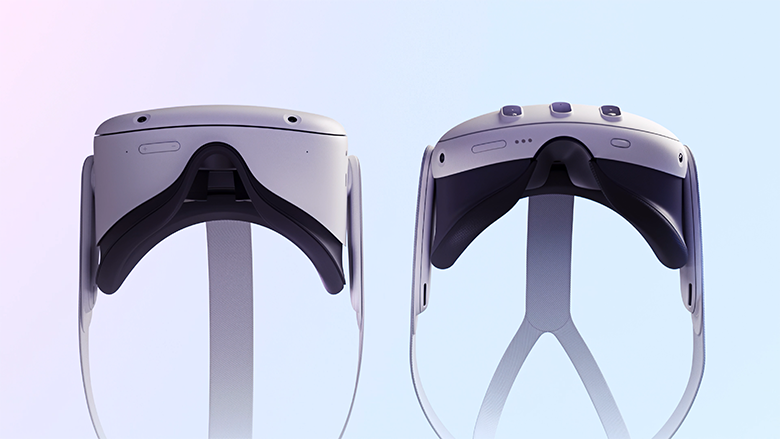
The Meta Quest 3's adoption of pancake lenses allowed Meta to greatly reduce the overall size of the headset (as shown in the above image). This is partially because the pancake lens housing takes up considerably less space compared to the more sizable housing for fresnel lenses, like that found in the Meta Quest 2.
The Quest 3's pancake lenses also cut down on potential artifacts such as god rays, while maintaining better clarity around their edges. It's a worthwhile upgrade for Meta's mixed reality headset, but it won't be an upgrade that carries over to the Meta Quest 3S.
Taking a closer look at leaked images of the Quest 3S reveals the telltale concentric circle patterns you'd expect to find on fresnel lenses, meaning that while the Quest 3S will have the power and performance of the Quest 3, its optics will likely be similar to the Quest 2.
It also means that the Quest 3S will not be as slim as its Quest 3 counterpart. Though how this impacts the headset's overall weight remains to be seen.

The Quest 3S is also reported to make use of a lower 1832 x 1920 per-eye resolution at 20 pixels-per-degree (PPD), compared to the Quest 3's 2064 x 2208, 25.5 PPD offering. Thankfully, the Quest 3S will at least remain as comfortable to use, thanks to refresh rates of 120Hz.
On the surface, these adjustments point to a less sharp, less immersive visual experience on the Quest 3S. However, the Quest 3S' lower resolution could also result in smoother gameplay with it needing to render fewer pixels at any time compared to the Quest 3.
| Header Cell - Column 0 | Meta Quest 3S (Rumored) |
|---|---|
| Optics | Fresnel |
| Display type | LCD (single) |
| Resolution | 1832 x 1920 |
| Refresh rate | 120Hz |
| Pixels-per-degree (PPD) | 20 PPD |
| Passthrough | Yes, RGB, 4MP |
The change in optics will also mean a change in display. Which could potentially once again work in the Quest 3S' favor when it comes to battery life.
The Quest 3's pancake lenses might be superior, but they require much brighter panels due to how much light is lost when traveling through them. The Quest 3 also has a dual LCD setup, one for each eye.
On the other hand, the Quest 3S' fresnel lenses don't have the same high levels of light loss, meaning its singular LCD won't need to be as bright or high-powered to deliver similar results.
Despite the difference in expected battery sizes (4,879 mAh for the Quest 3, and 4,324 mAh for the Quest 3S), the lower power draw of its display mixed with the improved efficiency of the Qualcomm Snapdragon XR2 Gen 2 chipset could see the Quest 3S equal if not outperform the Quest 3's 2-3 hours of battery life.
| Header Cell - Column 0 | Meta Quest 3 | Meta Quest 3S (Rumored) |
|---|---|---|
| Battery | 4879 mAh, 18.8 Wh | 4324 mAh, 16.74Wh |
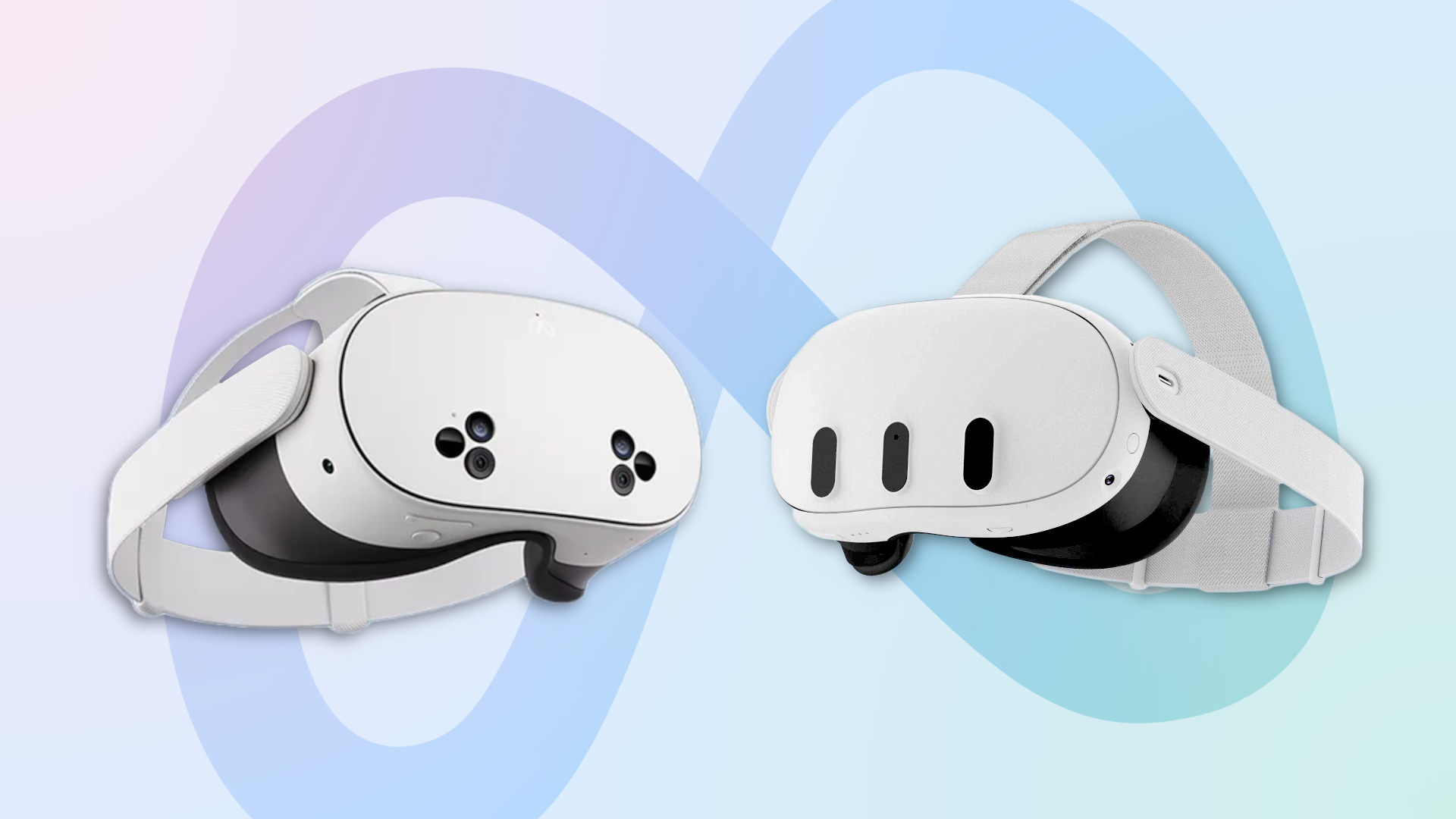
Several other changes of note can be found across the headset's overall design. It's not just a bulkier chassis that we can expect the Quest 3S to sport, but also a more simplified layout.
The Quest 3's IPD (Interpupillary distance) wheel is absent from the Quest 3S, indicating that the headset will also adopt the Quest 3's three-step lens spacing. The Quest 3S also looks set to ditch the Quest 3's four-step lens spacer, instead reverting to the need to add a lens spacer between the headset's viewport and facial interface manually.
Speaking of facial interfaces (which is an altogether too fancy word for the cushioning surrounding the headset's viewport), the Quest 3S will carry over the Quest 3's woven fabric padding, which is far comfier than the foam padding of the Quest 2.
Also absent from the Quest 3S will be the 3.5mm audio jack formerly housed on the right-hand temple of the Quest 3. Given the headset's Bluetooth capabilities, it's not a dramatic loss to face, though it may be something for wired headset users to keep in mind.
Thankfully, the Quest 3S retains the improved dual-speaker 3D audio temples of the Quest 3, so even without a headset the Quest 3S will sound pretty remarkable.
The Quest 3S power button has also been shifted to the bottom of the headset, now placed next to the volume rocker. While this is a small change, it is one that many Quest 3 owners will envy.
Myself especially. I've lost count of the number of times I've tried finding the power button by touch, only to realize I've been trying to press one of the Quest 3's outer "Canyon" sensors by mistake.
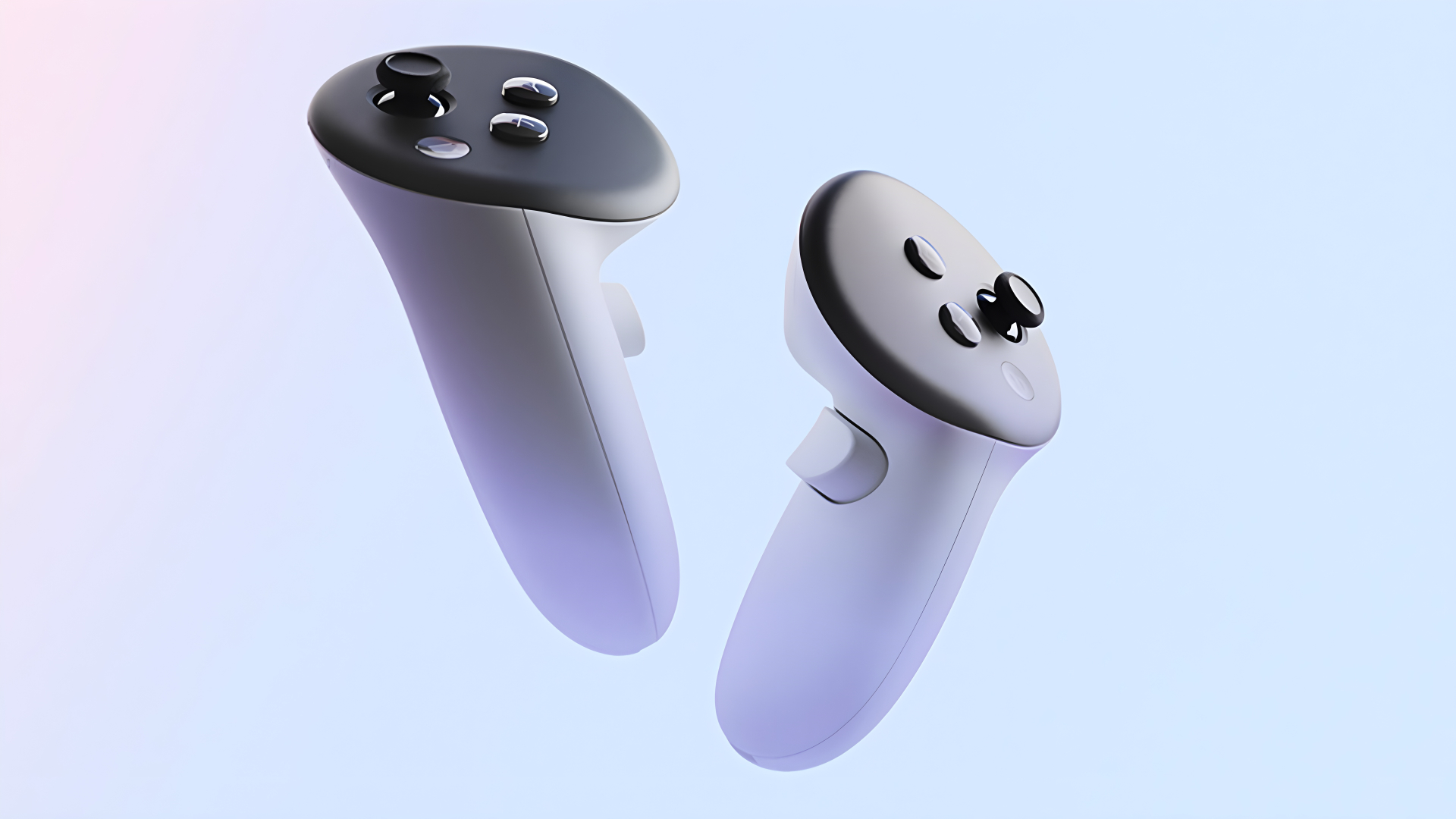
There's been some talk that Meta may ship the Quest 3S without its latest Touch Plus controllers, relying solely on hand tracking to keep the price of the Quest 3S as low as possible.
However, we do know that the Quest 3S will be compatible with these controllers, as Meta has updated its help section of the Meta homepage to indicate such.
While it's unheard of for Quest headsets to ship sans controllers, Apple's Vision Pro may have set the standard for hand tracking to be considered a primary method of control, and Meta may follow suit.
Then again, an early look at a Quest 3S store display says otherwise...
According to the information of one in-store Quest 3S display, Meta's new headset will ship with Quest Touch Plus controllers in the box. The display also confirms that the headset will be available in 128GB and 256GB configurations.
But what about the headset's price?

According to an Amazon ad perhaps incorrectly released too early on the Peacock streaming app, the Meta Quest 3S will reportedly secure the Quest 2's incredibly popular $299 price tag.
The Quest 2 sold millions of units and propelled the VR market towards the spotlight of the mainstream, and it would appear that Meta is now prepared to strap the same rocket onto the back of its more affordable third-generation headset and attempt to place it in the hands of as many consumers as possible to give mixed reality a similar boost in popularity.
The $299 price point has a proven track record for Meta, it opened up the Meta Quest 2 headset to a wider audience than ever and pushed overall sales of the Quest headset lineup well over 20 million units as of February 2023.
It's also the same opening price as the company's Ray-Ban Meta smart glasses, which have also proven to be a success for both Meta and luxury glasses maker EssilorLuxottica who recently extended their partnership into 2030 with a view to make "multi-generation smart eyewear products" together.
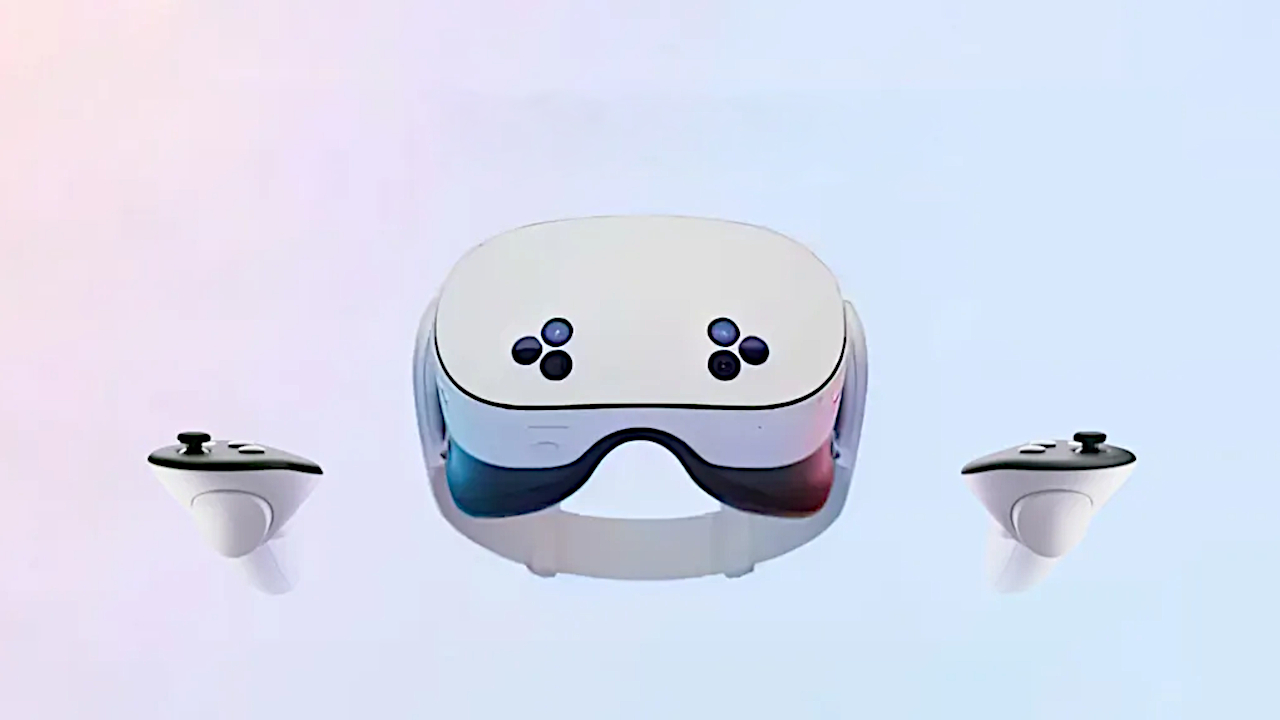
Meta Quest 3S: When will it release?
While we're confident that the Meta Quest 3S will be revealed during today's Connect keynote, the question of when we'll be able to pick one up remains unanswered.
We expect the Meta Quest 3S to become available for pre-order either during or following the Mark Zuckerberg-led Connect conference later today, but we can look at previous Quest headset releases to gain a better idea of when we can expect the new headset to be available for purchase.
Both the Meta Quest 2 and Meta Quest 3 were released on the second Tuesday in October, which would suggest that the Quest 3S should be released on October 8. However, an early Quest 3S bundle listing on Amazon Australia suggests otherwise, citing October 16 as the date you'll be able to purchase these items.
Accounting for the time difference, that would indicate that the Quest 3S may go on sale from October 15 in the U.S., which is, confusingly, the third Tuesday of the month. However, this could be the date bundles are released and not the headset itself.
| Quest Model | Release date |
|---|---|
| Oculus Quest | Tuesday, May 21, 2019 |
| Oculus/Meta Quest 2 | Tuesday, October 13, 2020 |
| Meta Quest 3 | Tuesday, October 10, 2023 |
| Meta Quest 3S | Tuesday, October 15, 2024 (Estimated) |

Meta Quest 3 vs. Meta Quest 3S: What do the leaks say?
We're still some time away from the Connect keynote's 11 a.m. PT / 1 p.m. ET kick-off, so if you'd like to learn more about the differences between Meta's third-generation headsets, then we've compiled a more detailed look at everything from design to optics in our Meta Quest 3 vs. Meta Quest 3S face-off.
Or, if you want to dive into the Meta Quest 3S in more detail, our Meta Quest 3S rumors page has all the information we've gathered on the upcoming headset.
For now, let's shift gears and talk about a reveal widely reported to take place at Meta Connect 2024: Meta's Orion AR glasses.
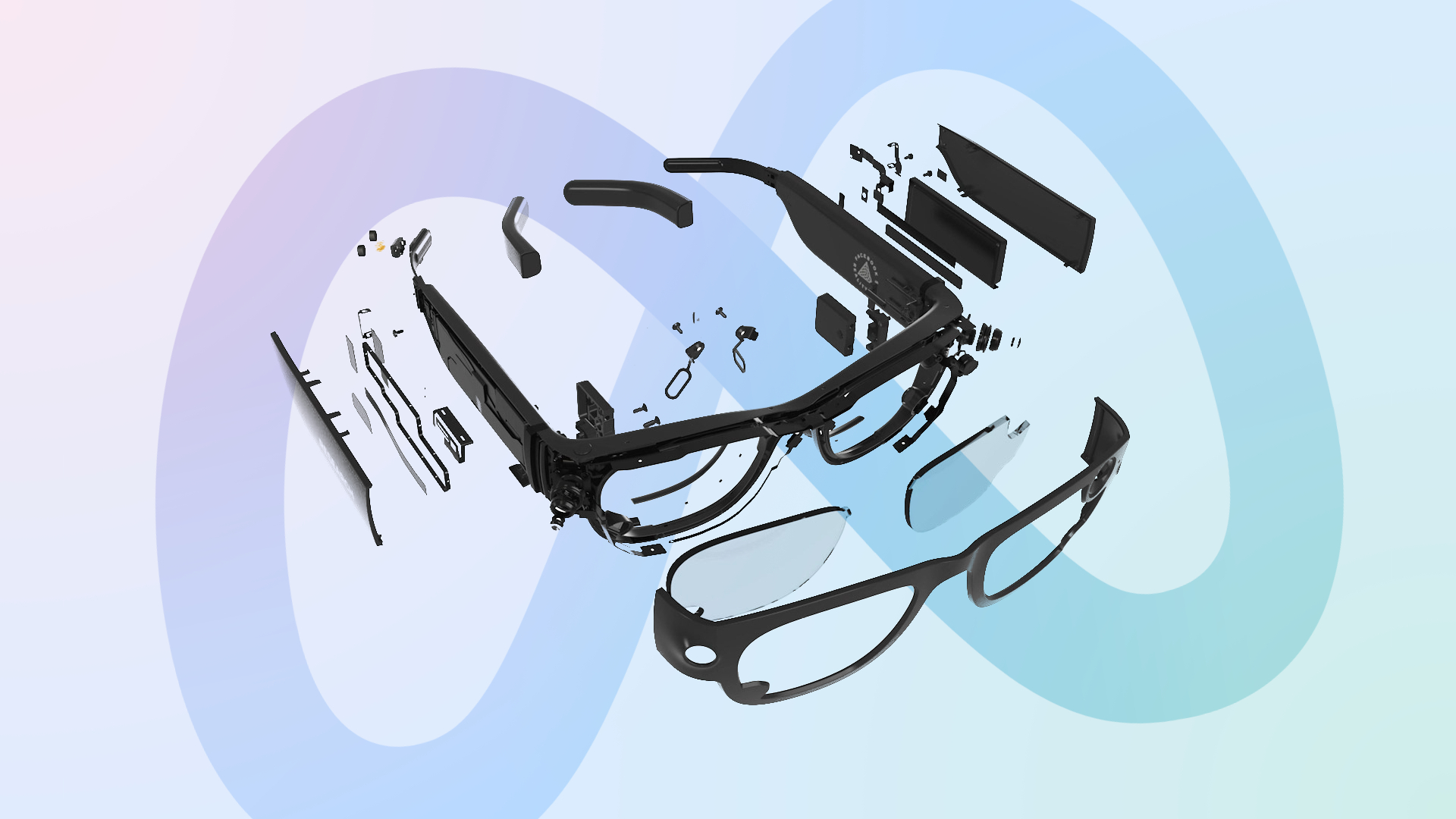
Meta Orion AR glasses: What are they?
The Quest 3S will likely be the most immediate hardware to become available following Connect 2024, but Meta appears to be prepared to showcase another product that won't make it to store shelves for some years to come, Orion AR glasses.
Meta's Orion glasses aren't so much long-rumored as they are long-spoken-about. Orion has been seen as Meta's end goal for smart glasses, offering a true AR or holographic visual experience to rival its main Quest lineup in glasses form.
It's not clear how Orion's AR frames will work, whether it's similar to the Snap Spectacles 5's waveguide lenses, a Birdbath projection method, or an opaque display relying on passthrough similar to the company's rumored Puffin glasses.
While there's some way to go before a product like this is cost-effective for Meta to manufacture at scale, the prototype Orion AR glasses are said to offer a wider field of view than current AR glasses that is capable of more headset level AR experiences and a tight integration with Meta AI.
Meta's Orion AR glasses have built up considerable hype surrounding today's event, and how could they not? They are the device that Meta CEO Mark Zuckerberg refers to as a "Holy grail" device, and the same pair of glasses that Meta CTO Andrew "Boz" Bosworth claimed to be "the most advanced thing we've ever produced as a species," at least in the realm of consumer tech.
While it's not uncommon for a company to talk up its products, Orion has been given the VIP treatment whenever they're brought up by those in the know. The bar has been set pretty high for Meta's future smart glasses, and today's event may give us our first real look at them.
Meta Orion AR glasses: When can we expect them?
While all that sounds radically impressive, when could we expect Meta's Orion AR glasses to actually become available?
Sadly, that's where the air is let out of the tires slightly, as it's expected that we won't be getting our hands on a pair of smart glasses like Meta's Orion until we're closer to the end of this decade.
Even more disheartening, when they do arrive, they could be incredibly expensive. As Meta CTO Andrew "Boz" Bosworth revealed to The Verge when talking about the cost of production, "It's prohibitively expensive. There isn't a real path to making it cost-effective. We thought maybe there would be breakthroughs on the drivers of cost, and that just hasn't materialized and doesn't look like it's going to materialize."
Ouch.
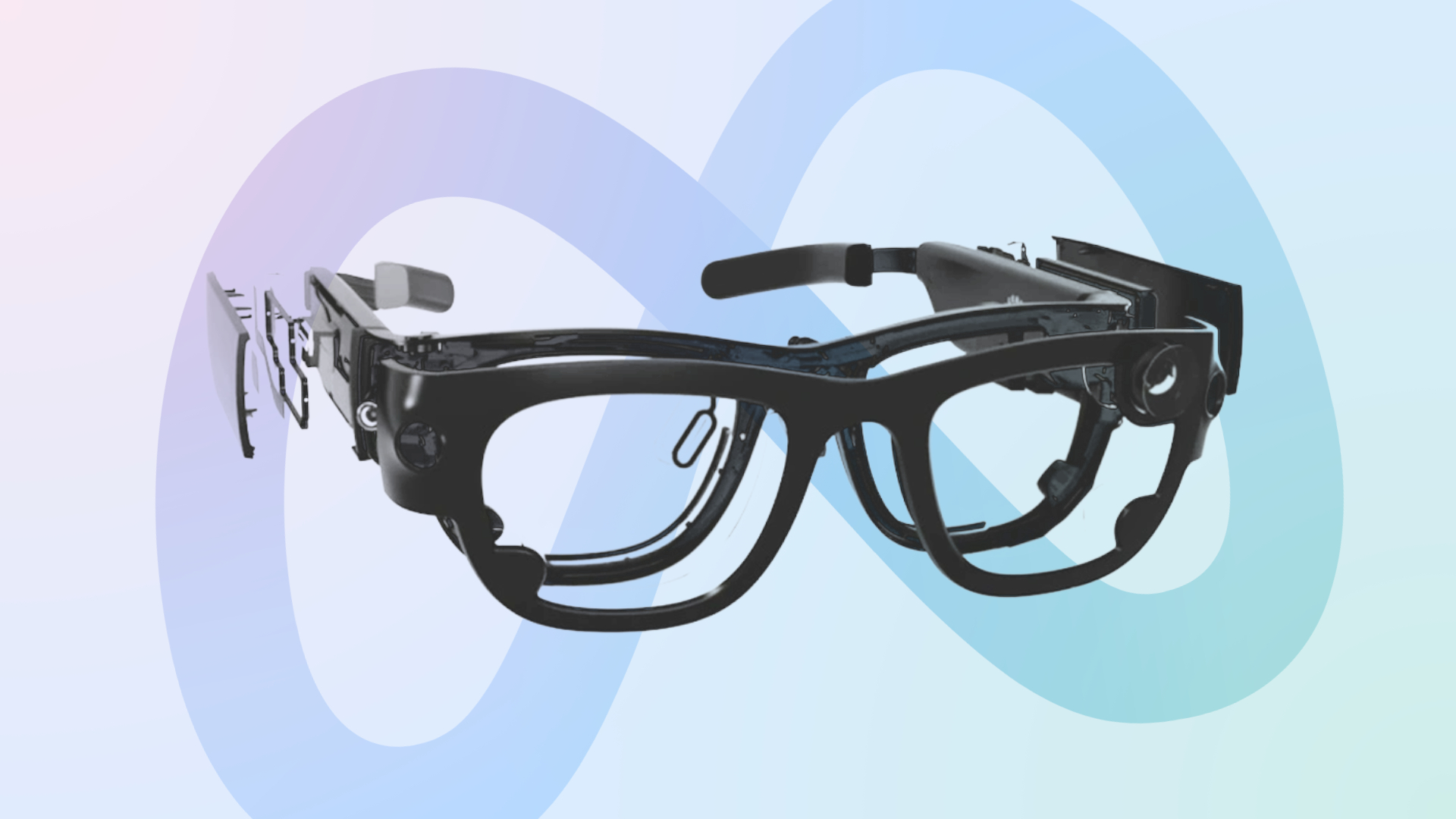
Third-generation Meta smart glasses: What are they?
While Meta's Orion glasses are a snapshot of what's to come, Meta may also showcase what's next for its smart glasses lineup.
We haven't heard a lot about Meta's third-generation smart glasses heading into Connect, but an internal VR/AR roadmap leak from Meta has suggested that they're on the way in 2025. This could make this year's Connect event a great launch pad for the upcoming frames and work to fill the void left by the realization that Meta's Orion glasses are many years away.
Thankfully, these third-generation Meta smart glasses are no slouch, building upon the success of the Ray-Ban Meta smart glasses by adding a visual element for the first time.
By "visual element," we don't mean the full AR experience that Orion is supposedly set to deliver. Instead, Meta's third-generation smart glasses are said to offer more of a low-field of view, holographic, heads-up display that Meta refers to as a viewfinder.
It'll likely still be tied to your phone, as the current Ray-Ban Meta smart glasses are, but will give wearers the ability to read incoming texts, translate text visually, and even scan QR codes by looking at them.
The viewfinder could also solve one of the Ray-Ban Meta smart glasses' most frustrating issues by giving you a view from the camera built into the frames to better line up photographs. We saw something similar from a tech demo Meta presented a few years ago, and it'd be great to see something like this come to fruition.
However, with a heads-up display, we'd need something to control it through, and touching your glasses constantly to navigate menus seems like a really obtuse way to go about it. Thankfully, Meta may have the answer to that also...
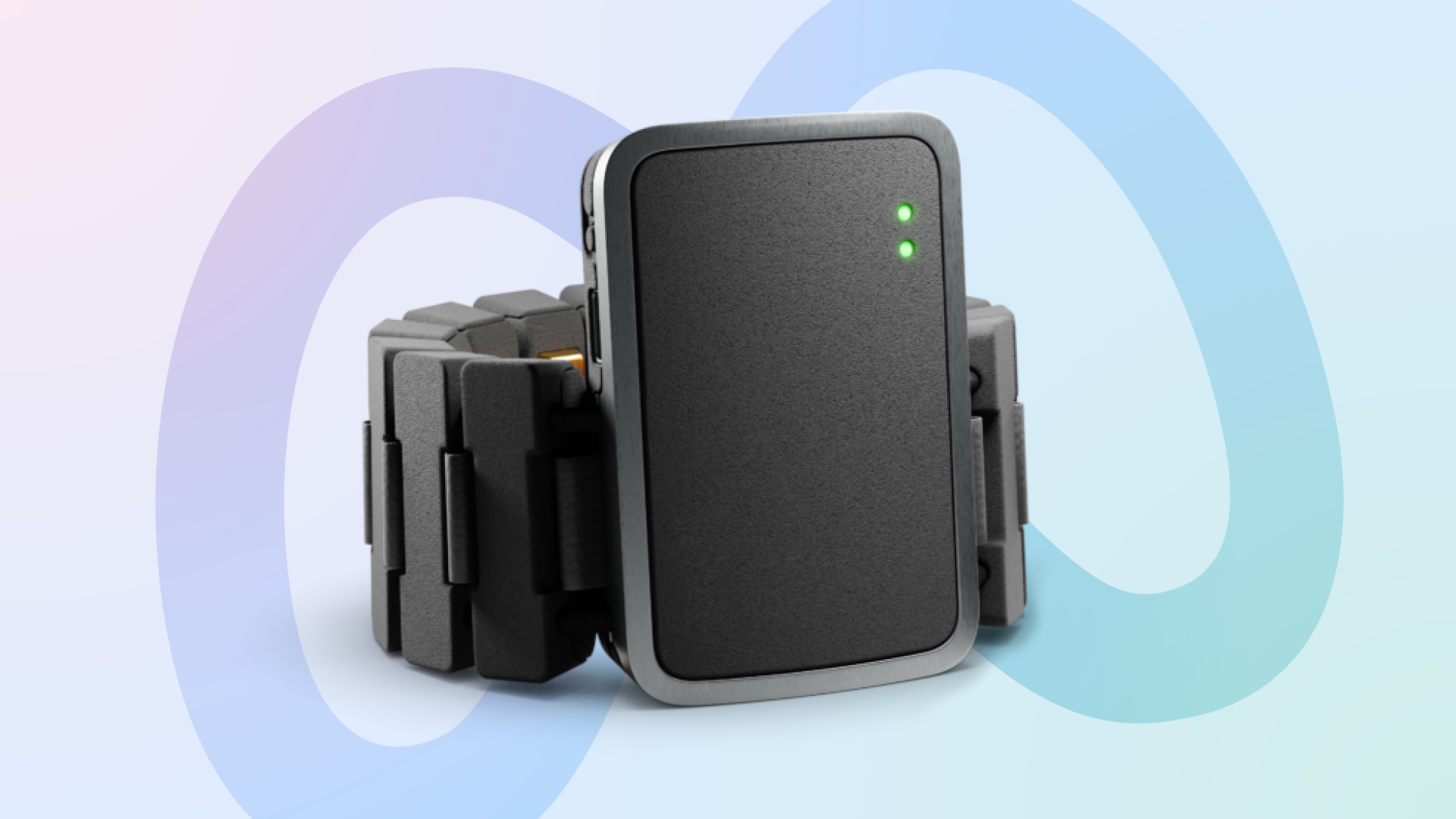
Meta Neural Wristband: What is it?
The price of the Meta Quest 3S will likely amaze. The capabilities of Meta's Orion will potentially stun. But the possibilities of Meta's Neural Wristband could outright make heads explode.
There's no real indication that we can expect this at today's event, but it is a product heavily tied to Meta's third-generation smart glasses as a method of interaction.
Meta's neural wristband measures the electrical signal between your brain and your hand and can translate those signals into inputs. Meaning that future Meta devices (and potentially non-Meta devices) can be controlled by hand and finger gestures without the need for a controller or tracking sensors.
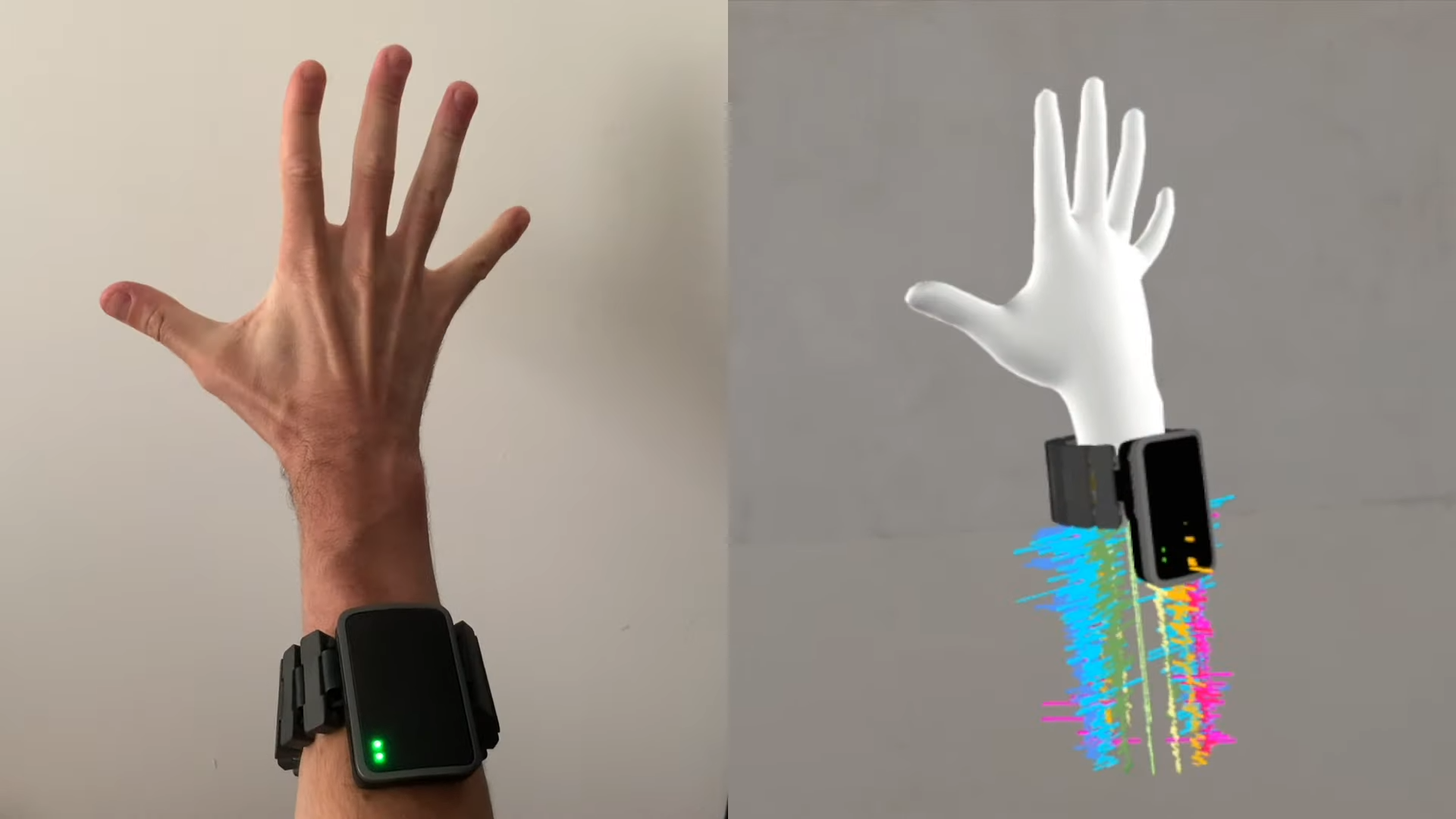
It's a wild concept, but it's not just a concept. Meta has been working on its neural wristband for some time now, and CEO Zuckerberg said earlier in the year that the company was closing on turning the prototype into a final product.
It's also likely the method of interacting with Meta's Orion AR glasses, which potentially furthers the notion of an appearance at today's event.
It's improbable, but not impossible.
Third-generation Meta smart glasses & Neural Wristband: When can we expect them?
According to the earlier mentioned VR/AR roadmap leak, which has so far proven accurate, Meta's third-generation smart glasses are expected to launch in 2025. The Neural Wristband is said to be an accompanying wearable to the glasses, potentially taking the form of a smartwatch.

Meta AI: What is it and what can we expect?
Meta AI launched last year, bringing the company's large language model to Instagram and its Ray-Ban Meta smart glasses, before finding a home in WhatsApp, Facebook Messenger, as a web portal, and even on the Meta Quest 3.
It's a virtual assistant and multi-modal AI that can be interacted with through voice, text, and visual prompts, powered by Meta's Llama 3 model. It's been an eventful year for AI as a whole, so we'd expect Meta to have plenty to shout about when it comes to its own AI platform.
The company recently gave users the ability to create AI counterparts trained on social media posts, comments, and interactions through Meta AI Studio, but there's word that the AI could be receiving a similar voice update to ChatGPT's Advanced Voice mode or Gemini Live.
However, Meta AI's new voices will reportedly be sourced from Hollywood, with celebrities such as Kristen Bell, Awkwafina, John Cena, Keegan-Michael Key, and Dame Judi Dench all tipped to lend their voices to the platform in a future update.
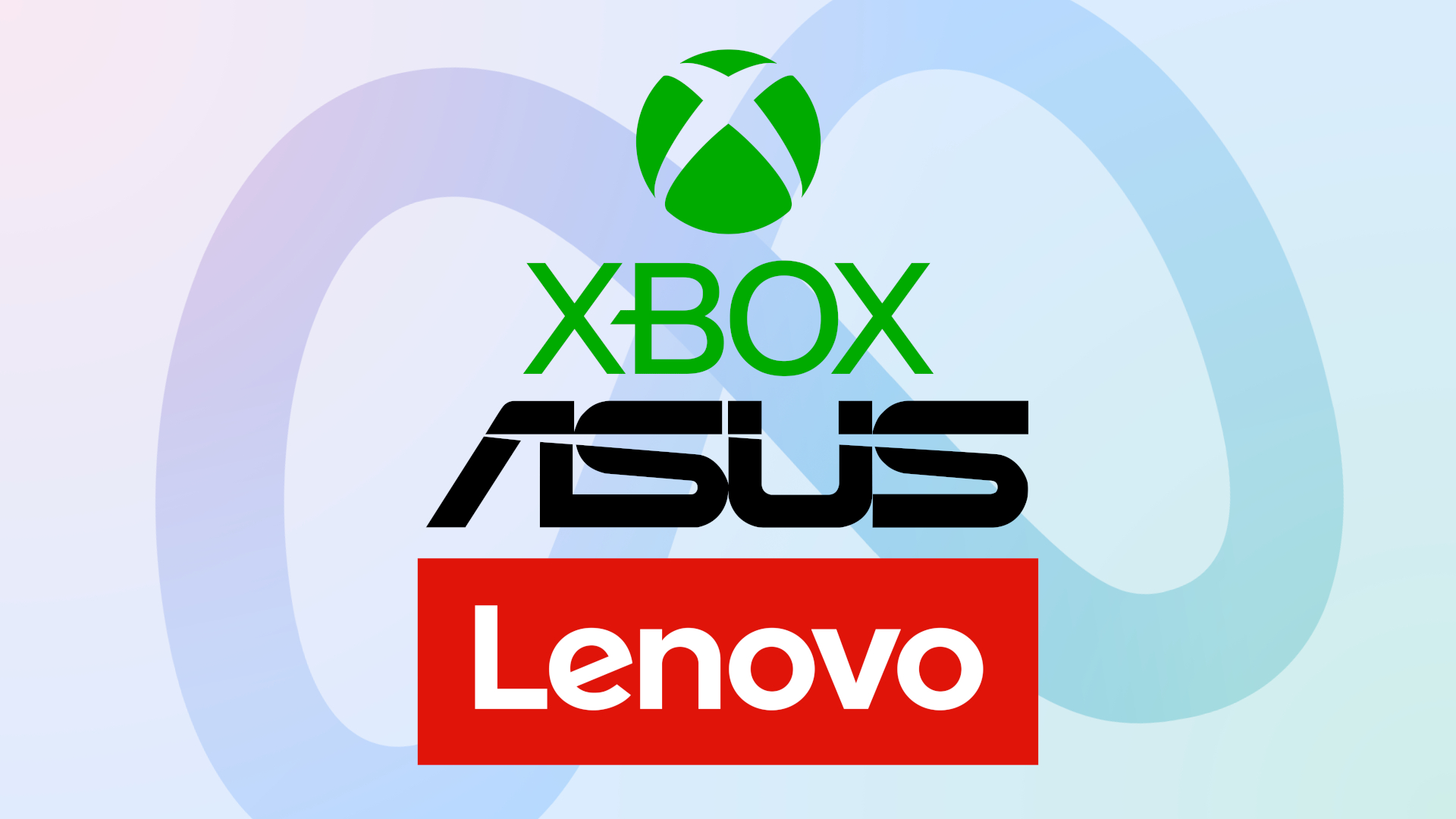
Horizon OS: What about that new "hardware ecosystem?"
Back in April, Meta announced that it was opening the doors for other VR and mixed reality hardware to adopt its Meta Horizon OS. Among the first interested parties were Xbox, Lenovo, and Asus ROG.
While the Xbox headset seems to suggest nothing more than a limited-edition version of a third-generation Quest headset, Asus ROG was reportedly looking to develop an all-new performance gaming headset, while Lenovo was said to be focusing on a mixed reality device for productivity, learning, and entertainment — which could be a new version of the company's ThinkReality A-series AR smart glasses.
It'd be good to get an update on how these projects are going, and whether or not new partners and projects are being worked on.

Horizon OS: A new look for Metaverse Avatars
Another feature we may be hearing more about during today's Connect keynote could address recent teases of an avatar overhaul. It seems likely that a Metaverse makeover is right around the corner.
A recent message appearing on the Horizon app when attempting to change your avatar's appearance indicates that there are big changes "landing soon," along with images that show more detailed avatars with the suggestion of better customization, and the ability to quickly change outfits.

Meta Connect 2024: How to watch (online and in the Metaverse)
It's almost time for the Meta Connect 2024 keynote to take place, so before we transition away from today's build-up we're here to remind you that you too can watch the Connect keynote as it happens if you have a Facebook/Meta account through the Meta event page.
You can also choose to attend Meta Connect 2024 live in the Metaverse should you be a fan of large empty spaces and free avatar swag. To do so you'll need to head to Meta Horizon Worlds on your Quest headset or through the Meta Horizon mobile app and seek out the Connect 2024 event.

Is anyone there?
It's not just you. We're 15 minutes past the alleged start time for Connect and there's still nothing happening on the livestream. That anticipation builds!
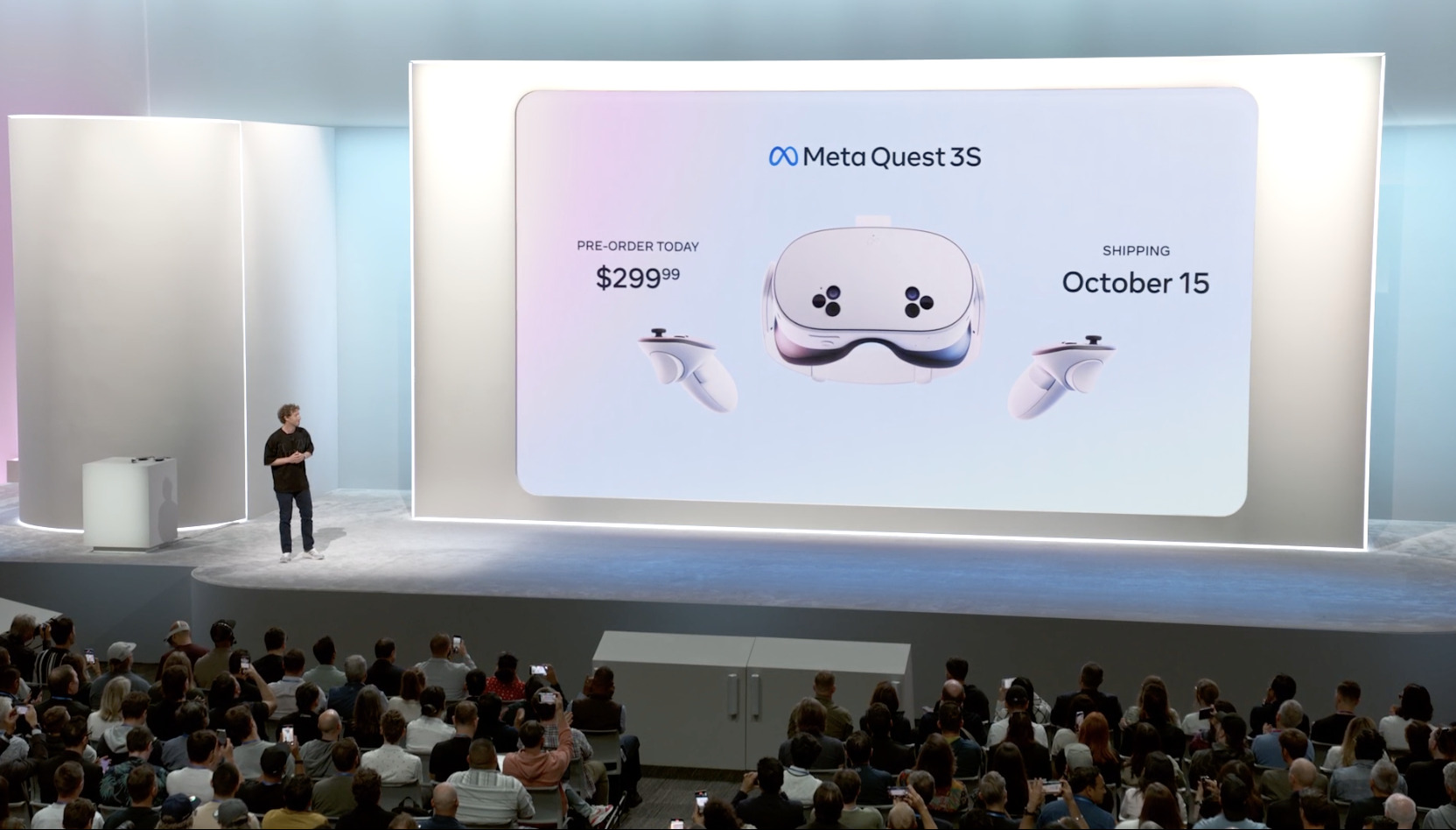
Finally, the Quest 3S
Zuckerberg didn't waste any time unveiling the Quest 3S, Meta's new, cheaper, headset that is debuting at $299 on October 15.
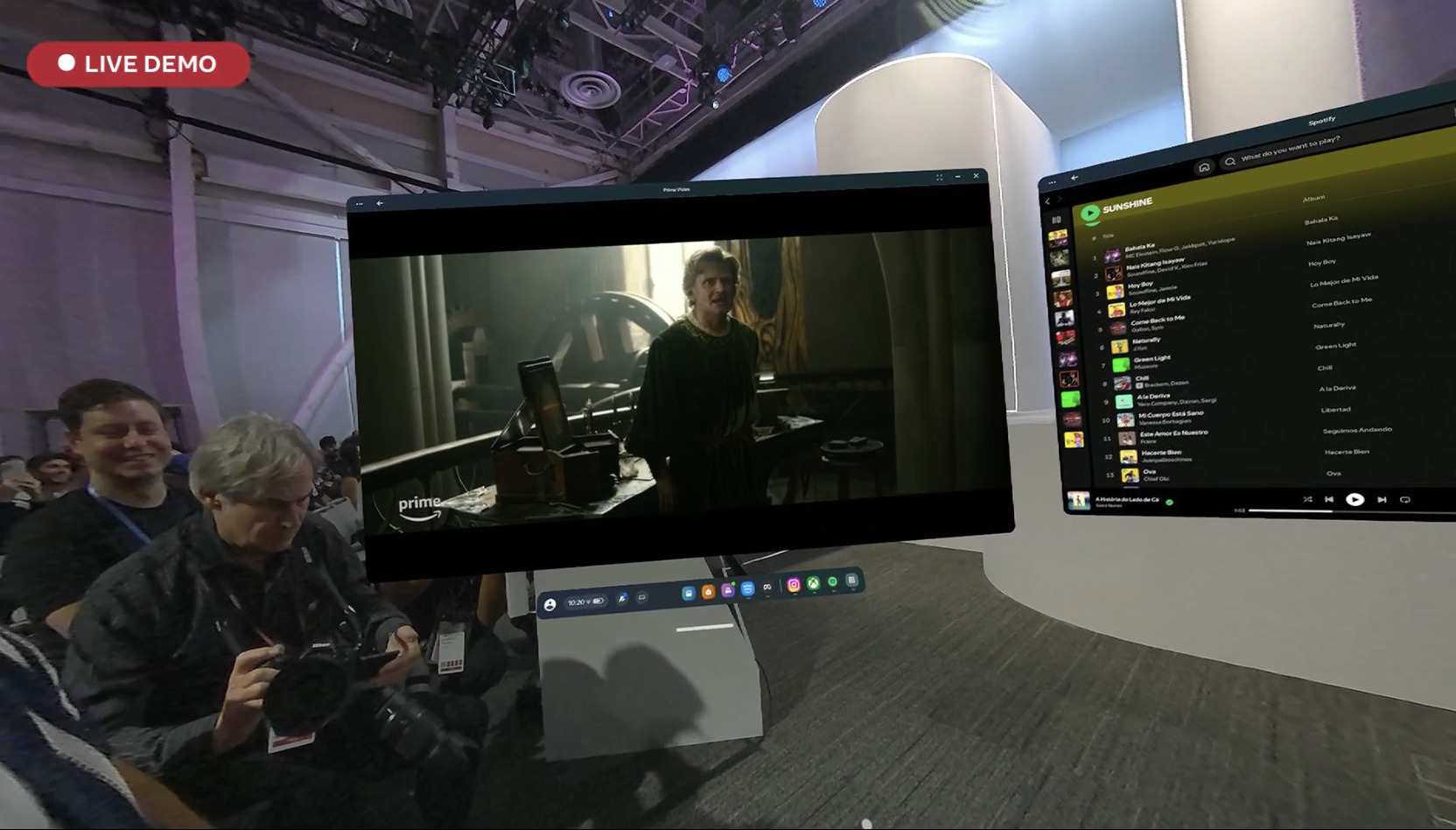
Surprise, there's no surprise
The Quest 3S looks exactly like what leaks said it would. After months of drips, the reveal is a little anti-climactic (if you've been paying attention), but that doesn't mean it won't impress when we finally get a chance to try.
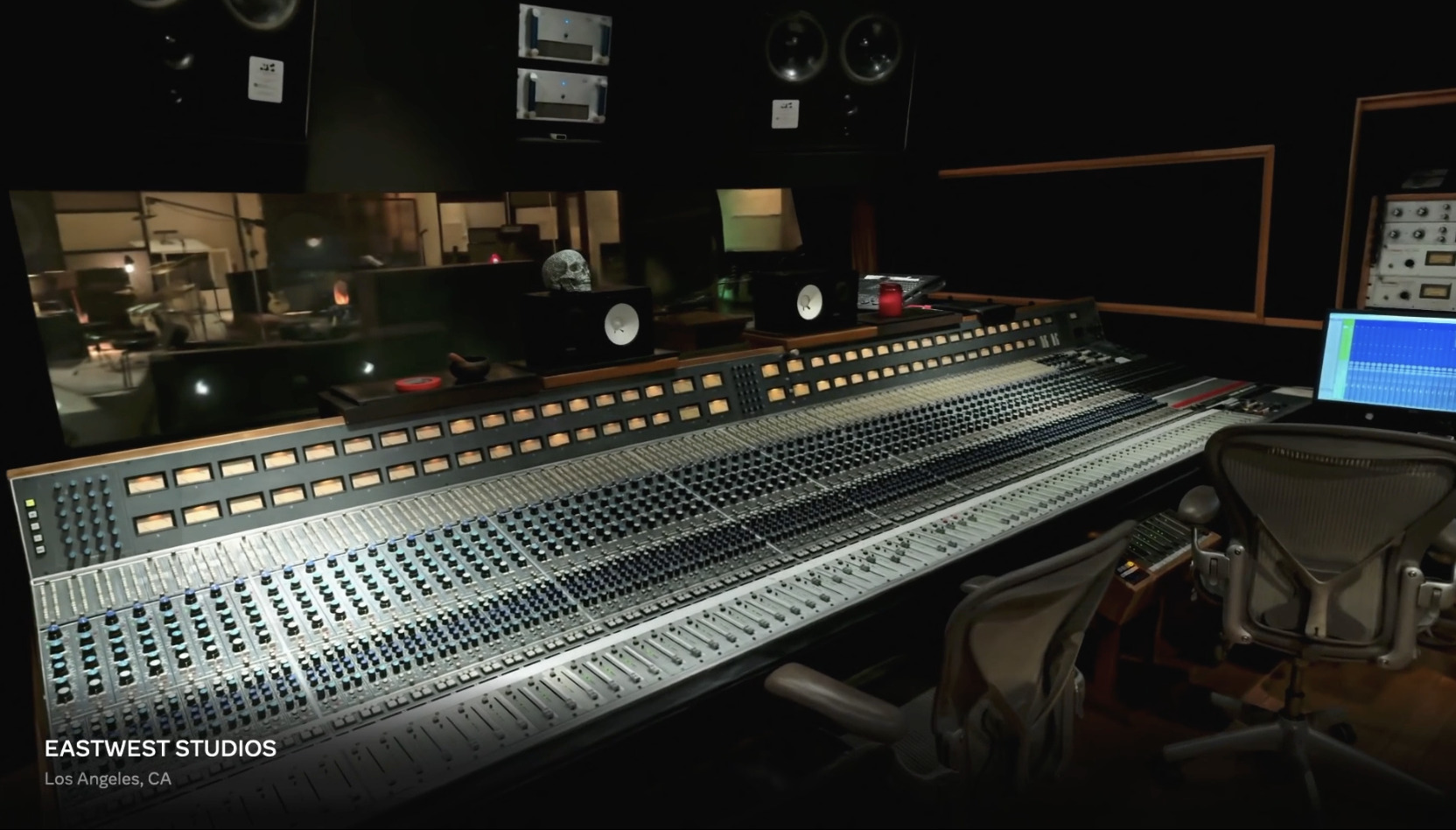
Hyperrealistic spaces
Models in the metaverse are getting more realistic graphics. Here's a snapshot of the studio where Green Day recorded it's famous album, "Dookie."

A Meta AI upgrade
Meta AI is coming the the Quest. Naturally, Meta is incorporating its Llama model into the Quest and the applications seem fairly far-reaching.
One of the most exciting is an integration with Meta Voice to make the Quest's UI feel more seamless. If you're sick of sifting through Quest menus, this should come as a welcome upgrade.
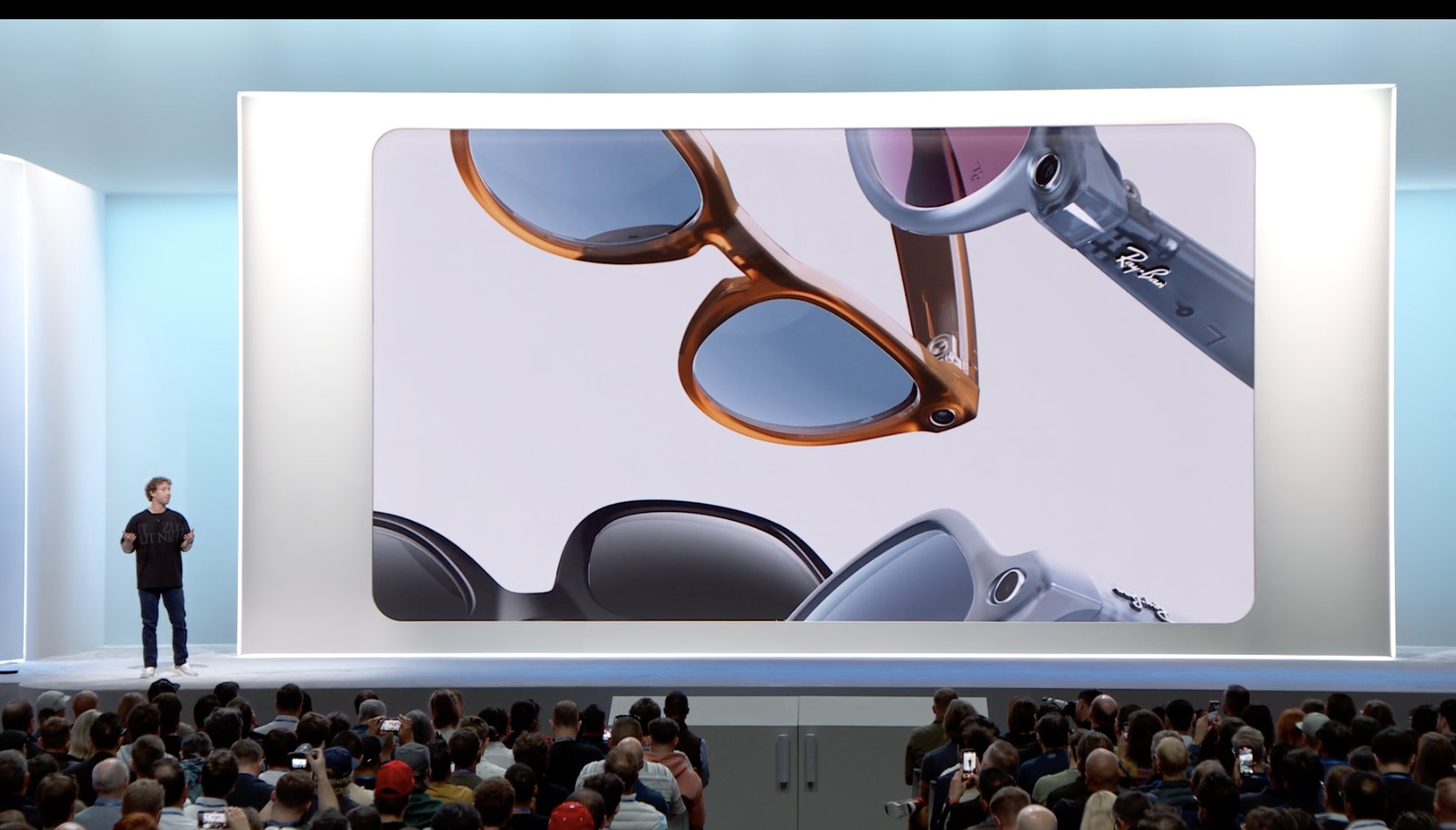
AI and AR glasses
Zuckerberg calls glasses "the perfect form factor for AI" in an update on its Ray-Bans which are getting a few major upgrades.
Among the upgrades is a "memory" that will help you recall where your car is parked or to pick something up at the grocery store.

Translation coming to Ray-Bans
Fans of Meta Ray-Ban smart glasses will also soon be able to take advantage of a live translate feature.
It's hard to say how well the feature works without using it, but on the surface, it could be useful if you don't feel like whipping out your phone.

The future of AR?
Zuckerberg also took the wraps off its Orion AR glasses which give a full mixed-reality experience in a form factor not far off from its Ray-Ban glasses.
They're 100 grams; they have a real XR display; and they get a lot closer to a real, mobile, face computer than pretty much anything else on the market.

But wait, there's more
It's not just a prototype for the first consumer holographic glasses the stole the show. Meta also further elaborated on its neural wristband that could act as an input method for Project Orion.
The idea is a compelling one: just think something and have your glasses carry out the task. How far off we are from that future is an entirely different question.
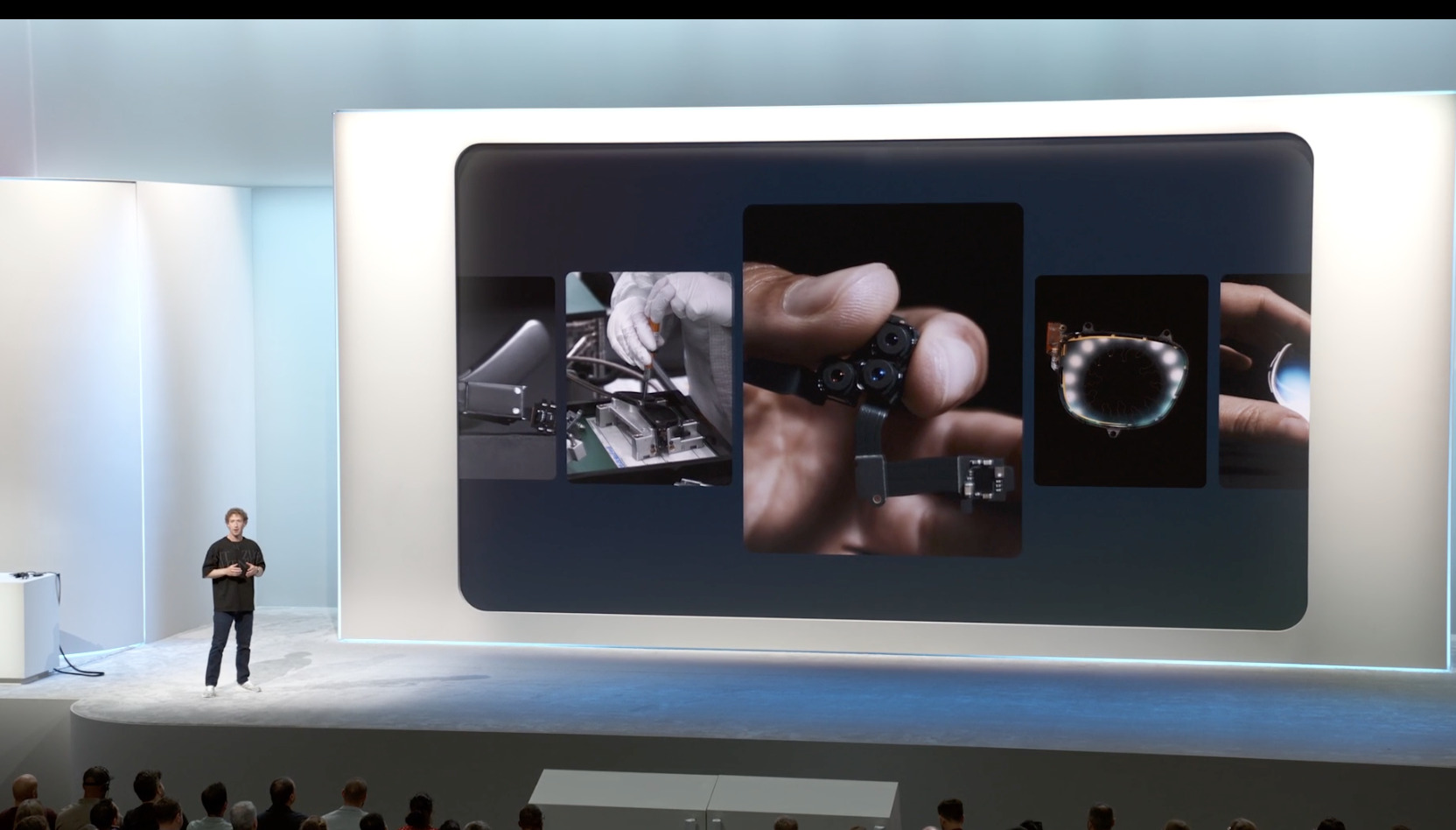
Orion is Meta's star
While a cheaper XR headset (the Quest 3S) is compelling for the more practical observers among us, for anyone looking to the future, Orion is easily the most compelling thing Meta announced.
Sure, headsets are the current-best tech for experiencing mixed reality, but ultimately, making hardware smaller but just as functional will convince the masses to hop on board. That's exactly what Orion is promising to do.
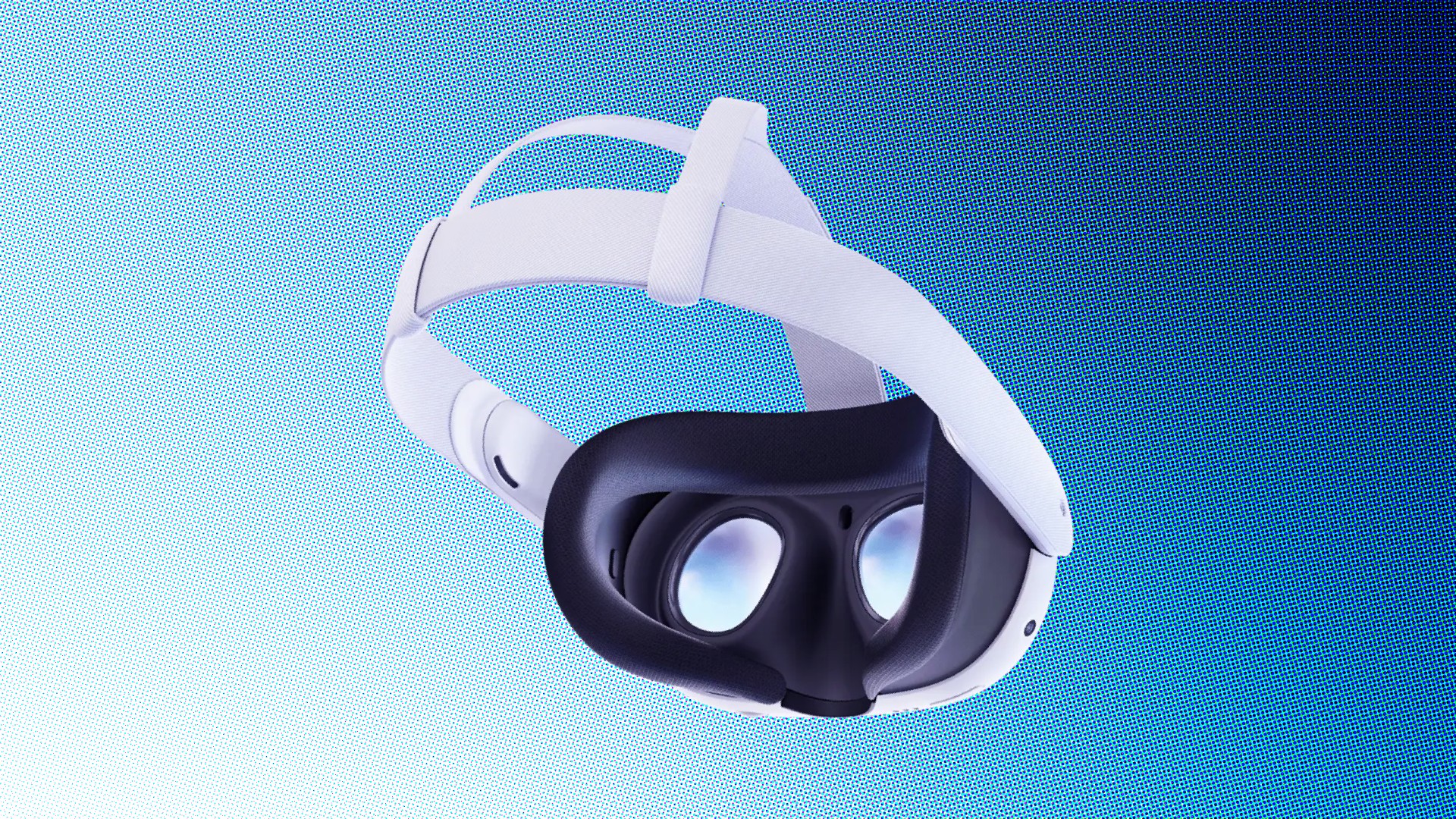
That's a wrap
Well, that was a lot to take in. The Quest 3S was exactly what we thought it would be — an enticingly cheap mixed reality headset meant to further push Meta's hardware to the masses.
Project Orion, however, was an exciting surprise. You shouldn't expect to be wearing a pair of holographic glasses any time soon, but it's clear Meta has high ambitions for our mixed reality future.
There's a little bit of everything in Orion. There's some neuralink; some Vision Pro; and a lot of Ray-Ban. Mostly, there's a lot of optimism on Meta's part. It's hard to say if it'll come anywhere near delivering on its promises, but I for one can't wait to watch Meta try.
